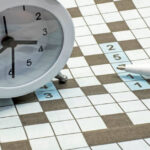For those suffering from diverticulitis, the search for relief can be frustrating, particularly when faced with recurrent flares, limited treatment options, and concerns about antibiotic overuse. One remedy that frequently enters discussions in alternative medicine forums is the use of Chinese curing pills, a traditional herbal formulation widely used for digestive upsets. But can these pills genuinely help with diverticulitis—a condition characterized by inflammation or infection of the diverticula in the colon?
This article explores that question with a detailed, balanced, and medically informed lens. We’ll evaluate what Chinese curing pills are, how they work according to Traditional Chinese Medicine (TCM), and whether any part of their action could intersect effectively with the pathology of diverticulitis. Our goal is not to replace medical advice, but to provide clear, contextual information for those exploring complementary approaches under professional guidance.
Understanding Diverticulitis: A Modern Medical Overview
Diverticulitis occurs when diverticula—small, bulging pouches that form in the lining of the colon—become inflamed or infected. Symptoms can range from abdominal pain (often on the lower left side) to fever, nausea, constipation, or diarrhea. Severe cases may involve abscesses, fistulas, or even perforation of the intestinal wall – can chinese curing pills help with diverticulitus.
Causes and Contributing Factors:
- Low-fiber diet
- Chronic constipation
- Aging (most common in people over 50)
- Gut dysbiosis
- Obesity and sedentary lifestyle
Standard Treatment Approaches:
- Antibiotics (ciprofloxacin, metronidazole)
- Clear liquid diet during flare-ups
- Surgery in complicated cases
- High-fiber diet for prevention post-recovery
This clinical approach is effective but often limited to managing symptoms, leading many to seek alternative or supportive therapies.
What Are Chinese Curing Pills?
Chinese curing pills (sometimes called “Culing pills” or “Bao Ji Wan”) are a widely used herbal remedy in Traditional Chinese Medicine (TCM), marketed for symptoms like indigestion, bloating, nausea, food stagnation, and general abdominal discomfort. They are commonly used in East and Southeast Asia and are often included in travelers’ first aid kits – can chinese curing pills help with diverticulitus.
Typical Ingredients Include:
- Chen Pi (aged tangerine peel) – Aids digestion, reduces bloating
- Hou Po (Magnolia bark) – Clears dampness, moves Qi
- Mu Xiang (Aucklandia root) – Promotes digestive flow
- Cao Guo (Tsaoko cardamom) – Warms the middle, dries dampness
- Zhi Shi (Unripe bitter orange) – Breaks Qi stagnation
- Gan Cao (Licorice root) – Harmonizer, anti-inflammatory
Each of these herbs targets specific digestive imbalances according to TCM theory: damp heat, Qi stagnation, or food accumulation. The goal is not to attack bacteria or reduce inflammation directly, but rather to restore harmony and flow within the gastrointestinal system.
Comparing Diverticulitis and TCM Digestive Syndromes
From a TCM standpoint, diverticulitis does not exist as a diagnosis in the Western sense. Instead, practitioners interpret the condition based on a constellation of signs and syndromes:
| Western Term | TCM Interpretation | Symptoms | Typical TCM Strategy |
|---|---|---|---|
| Diverticulitis | Damp-Heat in Large Intestine | Abdominal pain, bloating, fever, loose stools | Clear heat, resolve dampness, move Qi |
| Post-diverticulitis recovery | Spleen Qi Deficiency or Qi Stagnation | Fatigue, irregular bowels, gas | Strengthen spleen, tonify Qi, regulate intestines |
This means that Chinese curing pills may be symptomatically relevant, particularly in milder digestive presentations, or as an adjunct therapy during remission to prevent flare-ups.
Can Chinese Curing Pills Help with Active Diverticulitis?
This is where nuance is essential.
In acute diverticulitis (involving fever, severe pain, or confirmed infection), Chinese curing pills are not a substitute for antibiotics or hospitalization. However, they may provide adjunctive relief in milder, early-stage, or chronic cases, especially where bloating, trapped gas, or food stagnation are prominent symptoms.
Mechanisms that May Offer Benefit:
- Anti-inflammatory properties: Ingredients like licorice root and magnolia bark have known anti-inflammatory effects in animal studies.
- Digestive regulation: Herbs promote smoother bowel movement and reduce stagnation that might otherwise lead to increased pressure in diverticula.
- Microbiota modulation: Some herbs may support a healthier gut microbiome, indirectly aiding colon health.
- Qi movement: In TCM, unblocking “stuck” energy in the GI tract is central to preventing inflammation buildup.
These mechanisms suggest that while not curative, Chinese curing pills could support gut function and reduce triggers that contribute to diverticular flares.
Risks and Considerations
As with any herbal remedy, there are precautions:
- Not a replacement for medical care during active infections
- Potential herb-drug interactions (especially with anticoagulants, corticosteroids, or antibiotics)
- Inconsistent quality control depending on manufacturer
- Lack of large-scale clinical trials validating effectiveness specifically for diverticulitis
If you are considering Chinese curing pills for managing diverticulitis, consult a licensed TCM practitioner or integrative physician to tailor treatment to your pattern and stage of illness.
Table: Pros and Cons of Chinese Curing Pills for Diverticulitis
| Category | Pros | Cons |
|---|---|---|
| Symptom relief | May ease bloating and gas | Less effective for infection/inflammation |
| Digestive support | Regulates intestinal motility | May cause loose stools if overused |
| Safety | Generally safe in moderate doses | Risk of interaction with Western meds |
| Accessibility | Widely available, OTC in many countries | Variable quality across brands |
| Evidence | Some support from TCM theory and small studies | Lacks specific trials on diverticulitis |
Best Practices for Integrative Use
If you plan to integrate Chinese curing pills into a diverticulitis management plan:
- Only use during remission or for mild, non-infectious digestive upset
- Start with small doses under professional guidance
- Avoid during pregnancy or immune suppression
- Monitor for allergic reactions or side effects
- Pair with dietary changes (fiber, hydration, probiotics)
Beyond the Pills: TCM Strategies for Diverticulitis
TCM does not rely solely on herbal pills. A comprehensive TCM approach to diverticulitis may include:
- Acupuncture to improve bowel motility and reduce visceral pain
- Moxibustion to warm the spleen and move Qi
- Dietary therapy emphasizing cooked vegetables, rice congee, fermented foods
- Tai Chi or Qi Gong to reduce stress, a known trigger for GI inflammation
This broader approach may be more effective long-term than taking pills alone.
Patient Perspectives: Lived Experience
Anecdotal reports from patients who use Chinese curing pills alongside Western treatment are mixed but largely positive—especially in remission:
“After my second flare, I used Chinese curing pills any time I felt bloated or constipated. I haven’t had another flare in two years, though I also improved my diet and stress.”
“They helped my digestion during travel, but during my flare-up, they didn’t stop the fever or pain. I needed antibiotics.”
The consensus seems to be that Chinese curing pills may offer comfort and digestive regulation, but they are not designed to address the inflammatory crisis at the heart of acute diverticulitis.
What Science Says: The Evidence Gap
There is currently no large-scale clinical trial evaluating the effectiveness of Chinese curing pills on diverticulitis. However, individual herbs within the formula have shown promise:
- Magnolia Bark (Hou Po): Inhibits gut inflammation and has anti-anxiety properties
- Licorice Root (Gan Cao): Anti-ulcer, anti-inflammatory, immune-regulating effects
- Chen Pi: Promotes gastric emptying, relieves bloating
These suggest that while mechanistically plausible, more research is needed to validate outcomes in diverticulitis-specific populations.
Alternatives to Chinese Curing Pills for Digestive Support
If you’re hesitant to use Chinese herbal remedies, other complementary options exist:
| Option | Function | Considerations |
|---|---|---|
| Slippery elm tea | Soothes inflamed GI mucosa | Safe and natural, but mild effect |
| Psyllium husk | Promotes fiber intake in remission | Not for active flare-ups |
| Probiotic supplements | Supports gut flora | Choose strains specific to gut health (e.g., L. plantarum) |
| Peppermint oil capsules | Reduces gas and cramping | May worsen reflux in sensitive people |
Conclusion: A Useful Complement, Not a Cure
Chinese curing pills are not a cure for diverticulitis—but they may play a supportive role in managing digestion, easing discomfort, and maintaining remission if used wisely. Their strength lies in addressing the underlying patterns of dysfunction in digestion—Qi stagnation, dampness, and food retention—which may be precursors to the more serious inflammation that defines diverticulitis.
However, their use requires informed oversight, cautious dosing, and a clear understanding that they are not substitutes for antibiotics or emergency care – can chinese curing pills help with diverticulitus.
For those seeking to blend traditional wisdom with modern treatment, Chinese curing pills may offer relief and resilience, but they should be part of a holistic, well-coordinated care plan—one that includes medical monitoring, dietary changes, stress management, and, when necessary, pharmaceutical support – can chinese curing pills help with diverticulitus.
FAQs
1. Can Chinese curing pills cure diverticulitis?
No. Chinese curing pills cannot cure diverticulitis. They may help manage mild digestive symptoms like bloating or gas, but they do not treat the inflammation or infection involved in an acute diverticulitis flare.
2. Are Chinese curing pills safe to use during a diverticulitis flare-up?
Generally, no. During a flare-up involving infection, fever, or severe pain, antibiotics and medical supervision are essential. Chinese curing pills are more appropriate for symptom management during recovery or remission.
3. What symptoms of diverticulitis might Chinese curing pills help with?
They may help relieve bloating, trapped gas, mild constipation, or sluggish digestion—especially during post-flare recovery when digestion is sensitive but stable.
4. Are there side effects or risks in using Chinese curing pills?
Possible side effects include loose stools, allergic reactions, or herb-drug interactions. Always consult a healthcare provider before use, especially if you’re on medications or have chronic conditions.
5. How should I take Chinese curing pills if I want to try them for gut support?
Use them under the guidance of a licensed TCM practitioner. Take a small dose first, monitor your response, and avoid use during acute inflammation or alongside antibiotics unless approved by a doctor.











